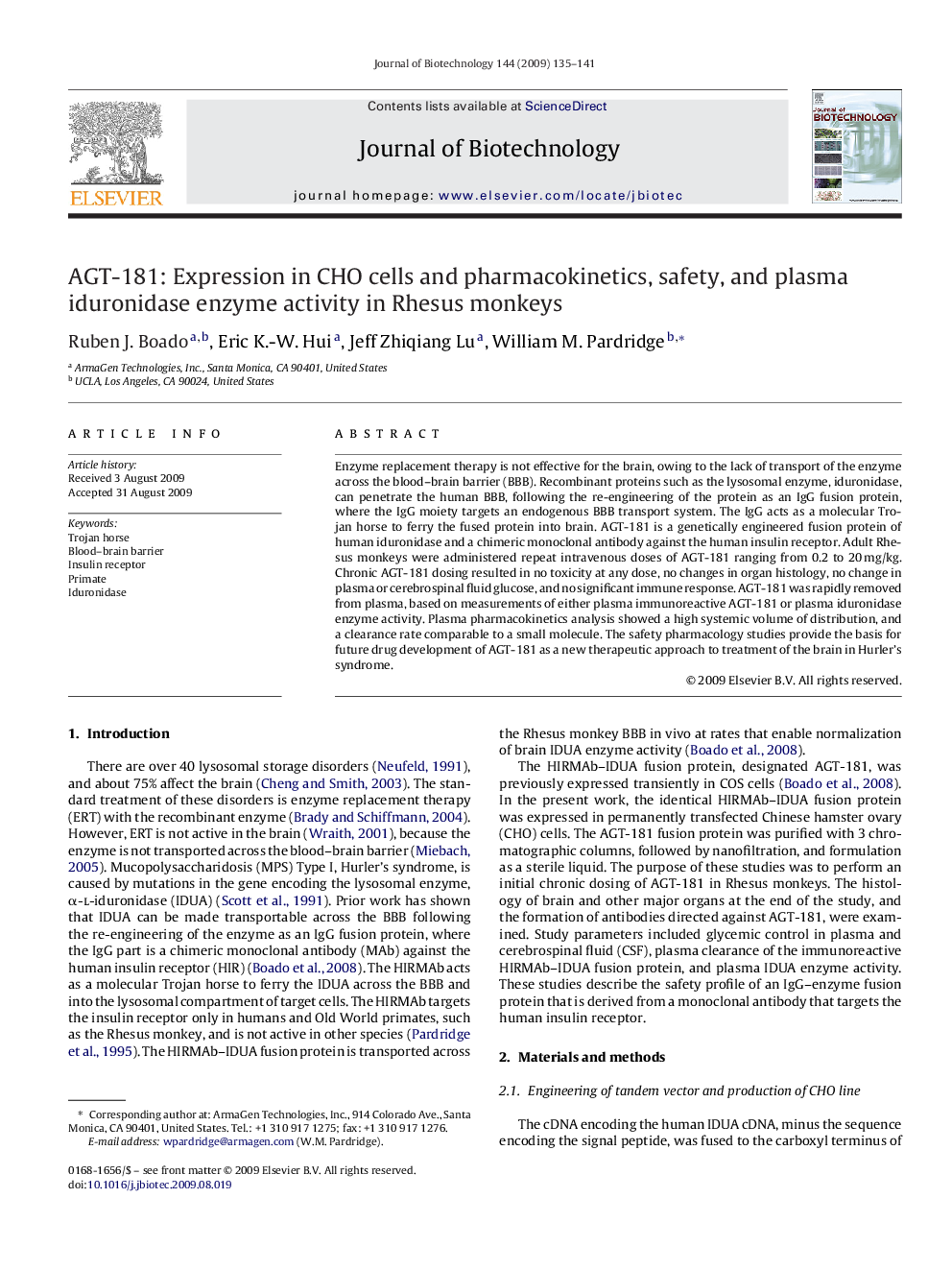| Article ID | Journal | Published Year | Pages | File Type |
|---|---|---|---|---|
| 24447 | Journal of Biotechnology | 2009 | 7 Pages |
Enzyme replacement therapy is not effective for the brain, owing to the lack of transport of the enzyme across the blood–brain barrier (BBB). Recombinant proteins such as the lysosomal enzyme, iduronidase, can penetrate the human BBB, following the re-engineering of the protein as an IgG fusion protein, where the IgG moiety targets an endogenous BBB transport system. The IgG acts as a molecular Trojan horse to ferry the fused protein into brain. AGT-181 is a genetically engineered fusion protein of human iduronidase and a chimeric monoclonal antibody against the human insulin receptor. Adult Rhesus monkeys were administered repeat intravenous doses of AGT-181 ranging from 0.2 to 20 mg/kg. Chronic AGT-181 dosing resulted in no toxicity at any dose, no changes in organ histology, no change in plasma or cerebrospinal fluid glucose, and no significant immune response. AGT-181 was rapidly removed from plasma, based on measurements of either plasma immunoreactive AGT-181 or plasma iduronidase enzyme activity. Plasma pharmacokinetics analysis showed a high systemic volume of distribution, and a clearance rate comparable to a small molecule. The safety pharmacology studies provide the basis for future drug development of AGT-181 as a new therapeutic approach to treatment of the brain in Hurler's syndrome.
